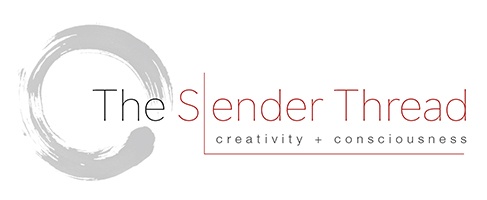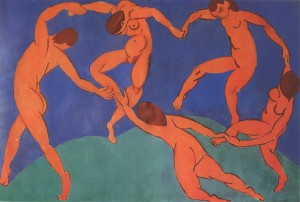Social Engagement in Spiritual Practice, Art … and Life
As soon as a plant breaks the surface of the earth, it begins to live in the light, to participate—receive and contribute to and from the complex eco-system that surrounds it. Organic life both gives and takes from its environment. Are we any different?Personal evolution—in the form of contemplative disciplines, creative development, and the search for awakening—takes place in context, in relationship with society and others. Spiritual work—and life—is at its core egoistic, but not narcissistic. Between these two, there is a world of difference. Can we learn to serve ourselves and others simultaneously?
A healthy egoism values oneself and has a certain kind of confidence and faith, that we can evolve and grow, that we have something to contribute to the world and others, and that we are fundamentally good human beings with the capacity for love and compassion. Narcissism, on the other hand, only recognizes others for what they can do for me, that the me is the center of the universe around which all things revolve, that my standpoint, my success, and my happiness ascends to the pinnacle on the scale of importance.
In an interview with James Hillman, art critic Suzi Gablick remarks: “You know it’s being said even of spiritual practice these days that hanging out in an ashram, or meditating on a mountain top—spirituality without service—is middle-class self indulgence. Isn’t that what it’s boiling down to for both of us? Therapy without service, working on just healing yourself, becomes another form of middle-class self indulgence. It’s like going to your studio because it makes you feel better. It’s not that I’m against feeling good, but at this point in time, is that enough?”
Inward growth, however we define it, has the universal aim of both presence and service. We wish to become more related to the whole of ourselves, in all of the dimensions of being human, and we need to open to those higher, finer energies that are knocking at our door, that we may someday receive and have the privilege to serve. We are told that the gods need us to fulfill their work on earth, to have a voice through which they may speak and act. To touch and serve the higher; what does this mean? And how may we become worthy of this great honor?
One of the key elements of the teachings of the Dalai Lama, for what he calls “this age of degeneration,” is developing a kind heart and an altruistic attitude toward all other human beings. Across the planet, we are witnessing unprecedented conditions of change, many of them not for the common good. Many artists and creative individuals are deeply searching for ways to cultivate and preserve empathy for the world and others, to renew hope, and to revive passionate caring. They sense the danger to our common humanity if any one of us of runs away in fear or panic, becomes cynical or apathetic, or turns a blind eye to the world.
Young scholar Jedediah Purdy eloquently asks: “Whose well-being is in my hands and in whose hands is mine?” This question redirects into our lives the light of Buddha’s teaching and the purpose of the bodhisattva’s great vow: to help all sentient beings and to assist all others on the path with skillful means. It offers a new perspective for caring, intelligent individuals that remains fully aware of human folly, but encourages us to keep on trying—bringing our wisdom to others with persistence, detachment, and the unshakable conviction that the world is worth saving. Vowing to find creative solutions to our challenges requires courage, and courage is found when we no longer view ourselves as the center of all things existing and open our hearts to the fragile, beautiful world we inhabit.
Spiritual teachings provide humanity with a path of development and a code of ethics that extends beyond one’s own boundaries. Jesus taught to “love one’s neighbor as oneself” (Matthew 22:36-40). The Buddha taught that one of the highest manifestations of spiritual work could be found in the Bodhisattva’s Way. Yoga’s eight-limbed path begins with the yamas, yogic guidelines for one’s relationship with the outer world. Why is living beyond the self so important? And how do we practice and understand compassion and social responsibility from a higher place—a place that isn’t concerned with appearances?
Compassion and genuine caring—about each other, the society, and the planet—strengthens the fiber of humanity and brings us into closer union with each other. New-ageism, individualistic paradigms, and capitalism have promoted the idea that self-involvement is in our best self-interest. The belief is that what serves the one serves the many. Yet this statement is not understood reciprocally. I would argue that what serves the many, serves the one. Isn’t this what our founding fathers implied by the “pursuit of happiness?”
We can apply this to any aspect of our lives: our families, the environment, our nations and ourselves.
This mirrors the great Boddhisattva’s Vow, a condition we can all aspire to. How often have we heard the comment: “I cannot help others until I myself become whole and complete?” Well, let us know when you get there — “send me a postcard,” as psychologist James Hillman wryly asks, when you arrive at this fictional destination, this shifting point, this elusive, never-to-be-fully-reached goal. Life is a process, a journey, not a destination. A way of balance is possible—to be equally and simultaneously attentive to oneself and the other; to have a broad, embracing attention, one that is not locked within ourselves or identified with another’s concerns. We strive to cultivate the courage to see what is—within ourselves, with others, and to bring our attention to the point of intersection—the relationship How do we respond to the call from other human beings? Can we see and hear the real request beneath their words and appearances? Others deserve our real attention. Learning to see others beyond the tight walls of our desires and personal agenda is a skillful act—the great Bodhisattva’s Vow.
Pema Chödrön states: “Few of us are satisfied with retreating from the world and just working on ourselves. We want our training to manifest and be of benefit. The bodhisattva-warrior, therefore, makes a vow to wake up not just for himself but for the welfare of all beings.”
Some people—and some works of art— are here to nourish; others to challenge; others to inspire and teach. Some are here to directly serve others through social action or the helping professions. And yet others perhaps hold the mission of art or story telling or creating new myths to live by. What is our task? What do the seeds of our own individuality dictate? All of us can strive to embody two of Gurdjieff’s five strivings: “to have a constant and unflagging instinctive need to perfect oneself in the sense of Being”, and “always to assist the most rapid perfection of other beings.”
In reading the accounts of Gurdjieff’s work with his groups, and observing the members of present groups that I have had the privilege to participate in, I find a new kind of potential in human relations. There is a word for this, a French word that has no exact translation into English: compagnons. This word implies companions on the way and strongly echoes the need to work together, strive together, and to make the vow to grow, for ourselves, each other, and even the world itself. The question I believe that sensitive people face daily is: do we wish to nourish our soul, through responsibility, effort, and caring, or do we lapse into the mere feeding of our ego and conditioned personality? Can we see and know the difference?
We are not alone. As an extremely elegant expression of the striving toward responsibility, one of the most inspirational speeches we have heard was Vaclav Havel’s address to the joint session of the U.S. Congress in March, 1990:
The salvation of this human world lies nowhere else than in the human heart, in the human power to reflect, in human meekness and in human responsibility… Without a global revolution in the sphere of consciousness, nothing will change for the better in the sphere of our being as humans, and the catastrophe toward which the world is headed—be it ecological, social, demographic or a general breakdown of civilization—will be unavoidable. If we are no longer threatened by world war or by the danger that the absurd mountains of accumulated nuclear weapons might blow up the world, this does not mean that we have definitely won. We are still incapable of understanding that the only genuine backbone of all our actions, if they are to be moral, is responsibility. Responsibility to something higher than ‘my family’, ‘my country’, ‘my company’, ‘my success’—responsibility to the order of being where all our actions are indelibly recorded and where and only where they will be properly judged.
Adapted in part from The Widening Stream: the Seven Stages of Creativity and Deep Perception: Cultivating the Art of Seeing, by David Ulrich

